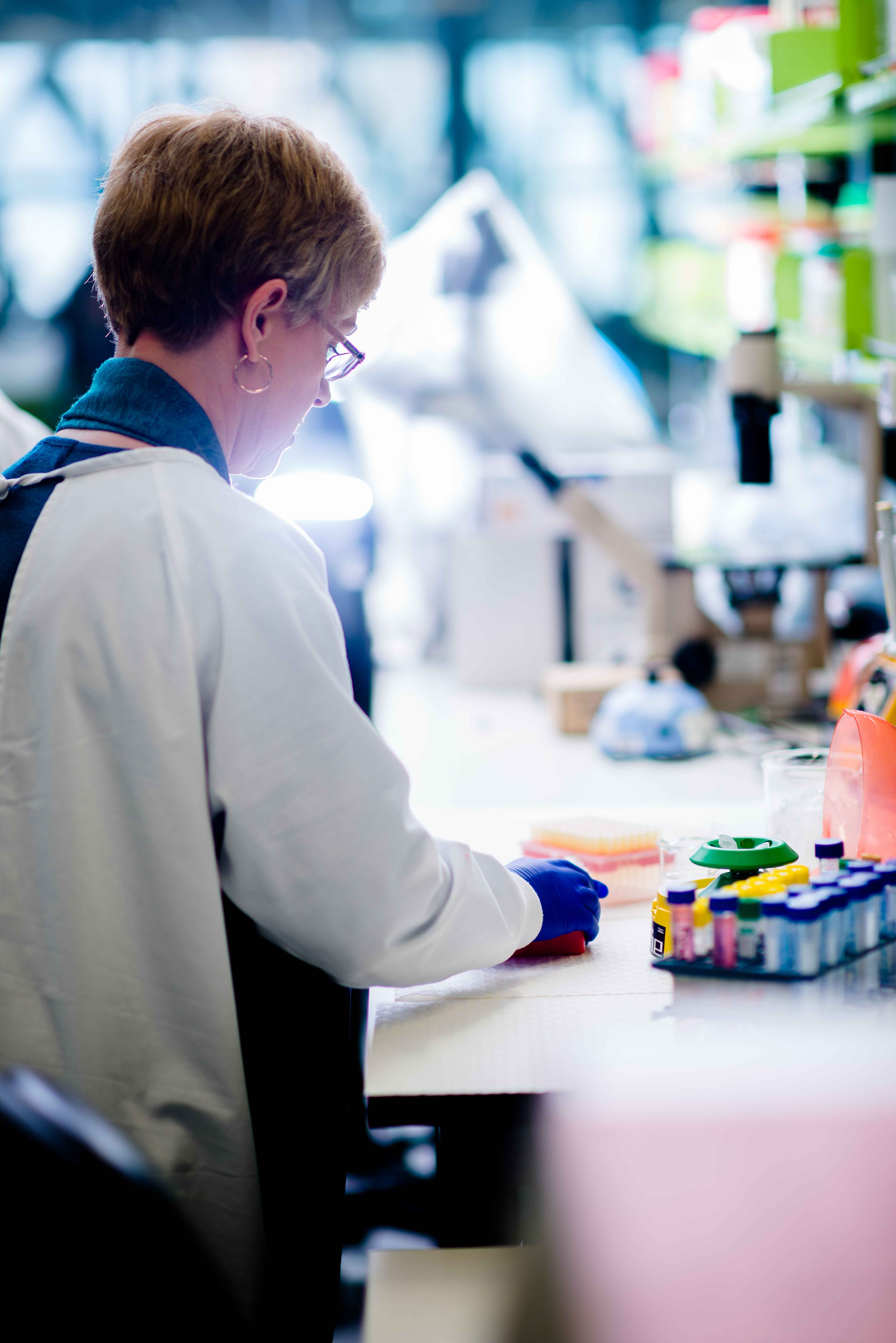 Alliance 1: The iCMLf Genomics Alliance
Alliance 1: The iCMLf Genomics Alliance
Developing a genome-based risk-calculator for newly diagnosed CML patients
The iCMLf has formed a Genomics Alliance to develop a genome-based risk calculator for newly diagnosed CML patients. The Alliance aims to harness the wealth of genomic information that is generated in local CML research projects by building a platform to facilitate data assimilation and sample exchanges. Combining many data sets and facilitating global collaborative studies will enable us to develop a baseline predictor of adverse outcomes.
This genome-based predictor will be validated prospectively. Following that, we will test whether a composite approach combining the validated genomic risk score with a clinically based risk score (e.g. SKOKAL, EUTOS or ELTS) will allow us to more reliably identify these high-risk patient categories. Finally, validation of the risk-adapted treatment approach developed would require one or more clinical trial.
Background
In many blood cancers drug selection is now based on a patient's genomic profile at diagnosis. Specific gene mutations can be targeted by a specific therapy. Furthermore, the genomic profile can categorise patients into risk groups, which aids the assigment of treatment strategies for best outcomes. In contrast, CML has been considered a genetically uniform disease because all patients have the same initiating genetic mutation, which is targeted by the same drug therapy and most patients respond well. However, recent studies of CML patients from a number of research groups suggest that some already have other genomic mutations at diagnosis and these my be responsible for poor response to standard therapy. Importantly, some of these additional mutations may be targeted by drugs that are already in use for other diseases.
Recent advances in next-generation sequencing (NGS) technology has now opened the era of precision medicine for the management of CML enabling incorporation of somatic mutation profiles at diagnosis, risk classification and prognostification. In CML, existing risk scores, such as SOKOL, EUTOS, and ELTS are based on clinical parameters at diagnosis. No single assay currently available has high enough sensitivity and specifically to allow us to identify high-risk patients with sufficient confidence to be clinically actionable.
Building a platform to facilitate data assimilation, sample exchange, cross-validation and ultimatley, validation of genomically-based predictor in prospective clinical trials
The iCMLf Genomics Alliance will harness the wealth of genomic information that is generated in local CML research projects by utilising a platform to facilitate data assimilation, sample exchange, cross-validation and ultimately, validation of genomically-based predictor in prospective clinical trials. Combining many data sets and facilitating global collaborative studies will enable us to develop a baseline predictor of adverse outcomes.
Global survey of current CML genomic studies and resources
A recent publication (Laying the foundation for genomically-based risk assessment in CML. Branford S et al. Leukemia, August 2019) examined studies that reported mutated genes in adult patients with CML. The paper evaluated the data for mutant recurrence and potential significance at diagnosis, TKI resistance and transformation)
Access the publication here (open access publication)
Current Genomics Alliance members
- Susan Branford (SA Pathology / Universities of Adelaide and South Australia) (Chair)
- Jane F Apperley (Imperial College, London)
- Charles Chuah (Cancer and Stem Cell Biology Signature Research Program, Duke-NUS Medical School, Singapore and Department of Haematology, Singapore General Hospital)
- Jorge Cortes (Georgia Cancer Center, Augusta University)
- Brian J Druker (Division of Hematology and Medical Oncology, Oregon Health & Science University Knight Cancer Institute, Portland and Howard Hughes Medical Institute, Portland)
- Christopher Eide (Oregon Health & Science University Cancer Institute, Portland, Oregon)
- Thomas Ernst (Abteilung Hämatologie und Internistische Onkologie, Klinik für Innere Medizin II, Universitätsklinikum Jena)
- Carlo Gambacorti-Passerini (University of Milano Bicocca, San Gerardo Hospital, Monza)
- Andreas Hochhaus (Universitätsklinikum Jena)
- Timothy Hughes (SAHMRI / University of Adelaide)
- Francois-Xavier Mahon (University of Bordeaux)
- Michael J Mauro (Myeloproliferative Neoplasms Program, Leukemic Service, Memorial Sloan Kettering Cancer Center, New York)
- Satu Mustjoki (University of Helsinki)
- Georgios Nteliopoulos (Centre for Haematology, Hammersmith Hospital, Imperial College, London)
- Tiong Ong (Duke NUS Medical School)
- Dennis Kim (Princess Margaret Cancer Centre, Toronto)
- Dong-Wook Kim (Yonsei University Hospital Seoul)
- Jerry P Radich (Fred Hutchinson Cancer Center, Seattle)
- Simona Soverini (University of Bologna)










